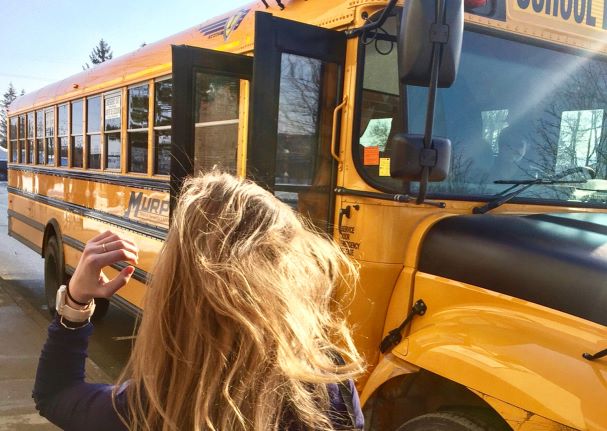- Sections :
- Crime & Public Safety
- Restaurants & Food
- Sports
- More
Ballotpedia: Texas is among three states that could advance school choice policy in 2025

THE WOODLANDS, TX – According to a recent article by Ballotpedia, the number of students in private school choice programs has grown in recent years as mostly Republican-led states have created or expanded programs that accept all or nearly all students.
However, school choice proponents have failed in recent years to get legislation enacted in GOP-controlled Texas, where rural Republican lawmakers have argued private school choice policies won’t benefit their districts, which tend to lack private schools.
Lawmakers in Texas and two other states – Idaho and Tennessee, all of which have Republican trifectas – have signaled that they intend to implement or expand private school choice programs. Those programs provide students with taxpayer funding for private educational expenses, including education savings accounts (ESA), vouchers, and tax credits. To date, 18 states have passed ESA programs, 20 have implemented voucher programs, and 25 have passed tax-credit programs.
School choice shaped this year’s Republican primaries in Texas and Tennessee. Texas Governor Greg Abbott (R) and Tennessee Governor Bill Lee (R), who were both unsuccessful in carrying out campaign promises to enact school choice, endorsed pro-school choice state House candidates in this year’s primaries. In late 2023, 21 Republican members of the Texas House and all 63 Democrats voted against including a universal ESA program in a larger education funding bill.
Abbott endorsed 14 candidates in the March 5 House primaries. Ten of them won their primaries and were elected in November. Four lost in primaries or primary runoffs. Abbott said, “The Texas Legislature now has enough votes to pass school choice. This is a victory for every Texas family across our great state. While we did not win every race we fought in, the overall message from this year's primaries is clear: Texans want school choice. Opponents of school choice can no longer ignore the will of the people.”
Lawmakers in Tennessee have filed school choice bills for the upcoming session, which begins Jan. 14. House Majority Leader William Lamberth (R) and Senate Majority Leader Jack Johnson (R) filed bills on Nov. 6. Their bills are similar to the one that failed earlier this year, and would provide roughly 20,000 students with $7,000 to spend on private school tuition.
Lamberth said, “Public schools are the foundation of our educational system, and they’ll continue to be the option of choice for most families. This bill empowers parents — not the government — to make decisions about the unique needs and diverse interests of their children. Our students deserve no less.”
In response, Rep. John Ray Clemmons (D) said, “We are strongly opposed to the defunding of our public schools, the redirection of tax dollars that are intended to support and fund our public education system.” Republicans have a 27-6 majority in the Senate and a 75-24 majority in the House.
In Idaho, House Speaker Mike Moyle (R) said, “I still think that the school choice issue is not going away. I assure you that something will happen next year.”
In March, the House Revenue and Taxation Committee voted 9-8 to reject HB 447, which would have created a $50 million refundable tax credit for private school tuition. Seven Republicans joined with two Democrats to defeat the bill. In November, Idaho School Boards Association members voted 7,281-674 on a resolution opposing the diversion of public funds to private schools.
Idaho, North Dakota, and Texas are the only states with Republican trifectas that have not enacted private school choice programs. Tennessee passed a school choice pilot program in 2019 that applies only to eligible students in three counties.
Thirty-three states have passed one or more types of private school choice programs, though most are limited to students with disabilities or from low-income families. Since 2021, 11 states have passed legislation making all or nearly all students eligible to participate in private school choice programs.
According to EdChoice, an organization that advocates for private school choice policies, more than one million students participated in programs that provided taxpayer funding for private educational expenses in 2024 – about 2% of public school enrollment.
Critics of private school choice programs say they primarily benefit children from wealthier families while diverting resources from cash-strapped public school districts.
In November, voters in Colorado, Nebraska, and Kentucky rejected private school choice measures. Nebraska voters repealed legislation that created the state’s Opportunity Scholarships program 57-43%. Coloradans voted 52-48% against adding the phrase “each K-12 child has the right to school choice” to the state constitution. Kentuckians voted 65-35% on a proposed constitutional amendment that would have allowed the Kentucky General Assembly to provide state funding to students outside of public schools.
Ballotpedia has counted 18 statewide ballot initiatives related to charter schools or vouchers since 1956. Of these, voters rejected 15 and approved three. Voters in 12 states decided on education-related ballot measures in 2024, the most in 18 years.





